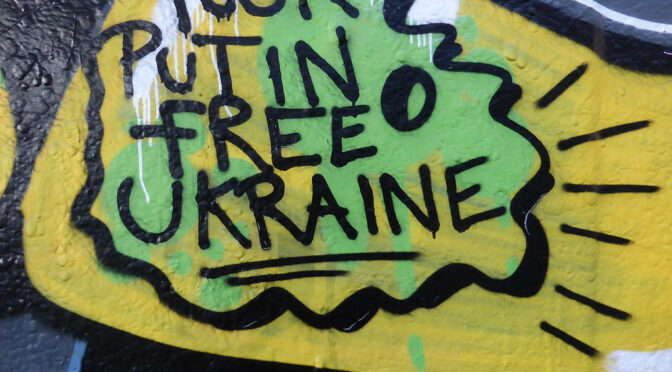Article published in The Daily Telegraph, 2 February 2022. © Richard Kemp
On a visit to Washington last week, I was struck by the consistent admiration for Britain’s stance on Ukraine from government officials and think tank leaders alike. Many admitted to previous concerns about the implications of Brexit on European security, due to the misplaced perception that it would herald an era of isolation. The same concern had been shared in many European capitals and featured prominently throughout the Remain campaign.
For our friends on the continent, that worry has now been supplanted by the fear that Britain is taking too strong a role in collective European security, exposing their own disunity and equivocation. There is a sense that we are undermining the Franco-German cartel by strengthening the more hardline security approach of Holland, Poland and the Baltic states.
The reality is that the Franco-German axis does not work when it comes to security. And while the governments in Berlin and Paris may not be ready to accept this view, Washington’s foreign policy establishment is rapidly coming to the same conclusion. The axis’s inadequacy is best demonstrated by the Normandy Format – a grouping of Germany, France, Russia and Ukraine, established in the wake of Russian aggression in Crimea to discuss the way forward – which has clearly failed to deter Putin.
Emmanuel Macron, the French president, recently caused consternation by calling for a separate EU dialogue with Russia that some feared might impair Nato’s diplomatic efforts. If he thinks alienating Washington is the best route to the EU strategic autonomy he desires then he is making a very dangerous mistake.
Closer to home, his attempts to deal with Putin have helped drive an east-west divide within the EU, with Poland, Estonia, Latvia and Lithuania despairing of his approach. They sit directly in the face of Putin’s belligerence and have experienced the kind of Soviet-era oppression he represents. They do not appreciate the inaction of French and German leaders who, comfortably distant, are preoccupied with gas imports and have an endemic fear of confrontation.
Britain, as so often in the past, is more closely aligned with the US perspective than that of our fellow Europeans. The Government recognises that Theodore Roosevelt’s 1900 dictum, ‘Speak softly and carry a big stick’, still holds good today. When Putin dispatched his forces to the Ukrainian border, he may not have intended to invade. He may not yet have decided what to do. But his decision will be conditioned by the response from the West, and where he senses weakness he will exploit it. The big stick is the understanding that there is a price to be paid. That is what we call deterrence.
Thus the British and American arms supply to Ukraine has escalated, including around 2,000 anti-tank missiles which could inflict severe damage on occupying forces. Boris Johnson recently warned that Moscow could face a new Chechnya, with that conflict in the 1990s serving as an illustration that the Russian people’s willingness to accept limitless casualties is a thing of the distant past.
In the meantime, President Macron has accused Britain of scaremongering in a way that might bring about the events it seeks to prevent, and Germany refuses to supply lethal weapons to Ukraine while vetoing the plan of another Nato member, Estonia, to send artillery. Berlin’s hesitancy owes much to its legacy of war in eastern Europe, but it has learnt the wrong lesson. Supplying defensive weapons is more likely to deter Russian aggression than cause the sort of bloodshed they were once responsible for.
On economic sanctions – another big stick with which to whack Putin – Liz Truss, the Foreign Secretary, in lockstep with the US, has announced legislation to enable what she says ‘will amount to the toughest sanctions regime against Russia we have had in place yet, and mark the biggest change in our approach since leaving the European Union’’. These measures, which Putin’s spokesman has described as ‘extremely alarming’, will more closely target oligarchs and supporters of the Russian president. EU states, however, have hesitated, reluctant to risk trade for the sake of conflict-prevention.
Is it any surprise that observers in Washington have had to re-evaluate their post-Brexit assumptions of British foreign policy? They see in London a refreshingly like-minded assessment of what is happening, and what is needed to deal with Putin.
This situation requires not timidity but boldness. That is what gains respect in Washington and unease in Moscow. It is not just about deterring Putin from invading Ukraine, but showing him and other potentially belligerent world leaders that the West will not just roll over at the first sight of aggression. Unfortunately, too many of our allies do not understand this simple fact.
Image: Flickr

